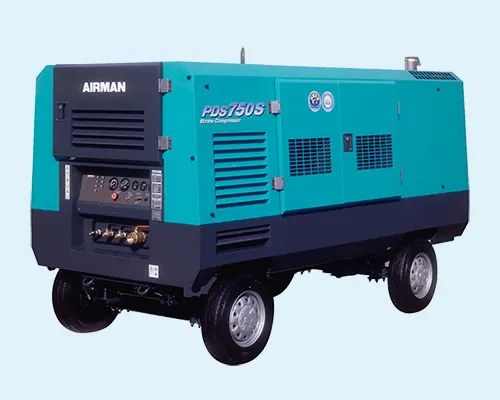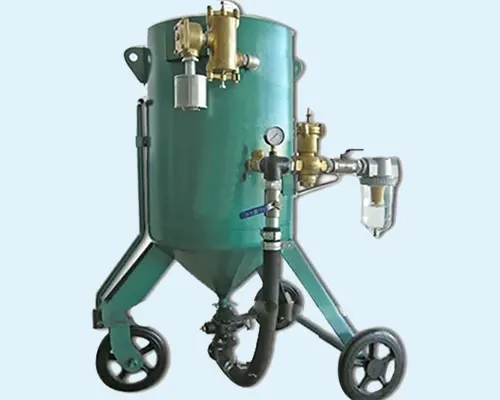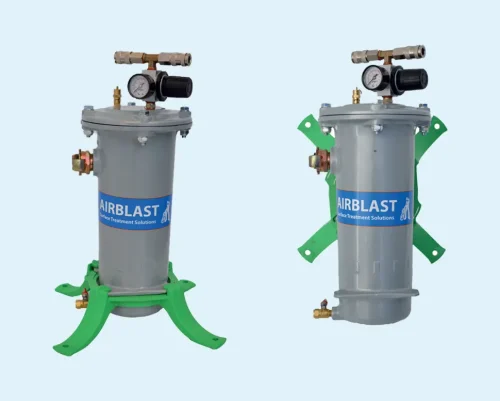Sandblasting Types and Equipment
Getting to Know Sandblasting Types and Equipment
The term Sandblasting is no longer foreign in the world of Shipping (Marine), Industry and civil construction at this time. But what exactly is sandblasting?
Sandblasting
Sandblasting is the process of spraying abrasive material in the form of silica sand or steel grit with high pressure on a surface with the aim of removing contaminating materials such as rust, paint, salt, oil and others. In addition, sandblasting also aims to create a profile (roughness) on the surface of metal or others so that good adhesion can be achieved between the metal surface and protective materials such as paint. The level of roughness can be adjusted according to the size of the sand and its pressure. Sandblasting is very important, because the success or failure of a painting depends greatly on the level of cleanliness and the level of adhesion between the paint and the surface as well as the level of density and smoothness of the paint itself.
Types of Sandblasting
Dry sandblasting
This type is usually used for objects made of metal or iron that have no risk of producing sparks when spraying takes place. Examples include cleaning ships, tugboats, pipes, steel frames of building structures, containers, tower frames, piles, girders, heavy equipment, water tanks and others.
Wet Sandblasting
In this type, the abrasive material used for spraying (silica sand) is mixed with water or a special material (liquid) in order to minimize sparks during the sandblasting process. Wet sandblasting is applied to metal/iron objects that are at risk of burning or located in areas at risk of fire, such as sandblasting fuel tanks, oil refineries (offshore) and others.





